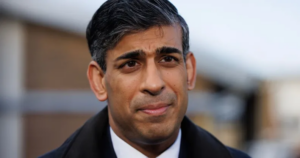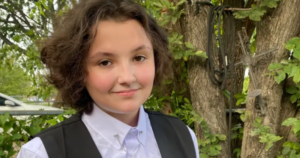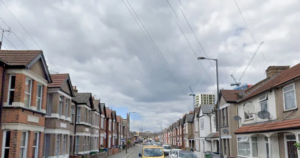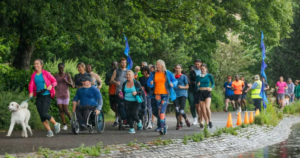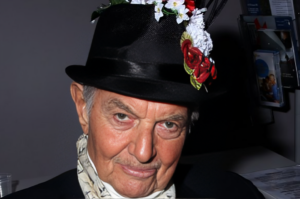US Agency for International Development Administrator Samantha Power recently met with LGBTQ and intersex activists in Budapest, Hungary. The meeting focused on the experiences of LGBTQI+ people in Hungary and their efforts to increase understanding, support marginalized groups, and improve the lives of LGBTQI+ people in Hungary. Power emphasized that the United States will continue to stand as an ally with LGBTQI+ people and all marginalized groups in their struggle for equality.
The meeting took place amidst Prime Minister Viktor Orbán’s crackdown on LGBTQ and intersex rights in Hungary. Hungary’s legal system makes it impossible to change gender legally due to a 2020 law that banned legal gender recognition of transgender and intersex people. In addition, an anti-LGBTQ propaganda law, “copy and pasted” from Russia, took effect in 2021. Furthermore, Hungarian MPs effectively banned same-sex couples from adopting children and defined marriage in the country’s constitution as between a man and a woman.
The European Commission last July sued Hungary over the country’s propaganda law. President Joe Biden signed a memorandum in 2021 committing the US to promoting LGBTQ and intersex rights abroad as part of his administration’s overall foreign policy. David Pressman, the US ambassador to Hungary, is openly gay.
USAID spokesperson Jessica Jennings, in a press release, said the activists who attended the meeting “discussed the experiences of LGBTQI+ people in Hungary and their efforts to increase understanding, support marginalized groups, and improve the lives of LGBTQI+ people in Hungary” with Power. Jennings did not say whether Pressman attended the meeting with the activists, but it did note he met with Power before she left Budapest.
Budapest Pride President Viktoria Radvanyi and Hungarian Helsinki Committee Head of Advocacy András Léderer were two of the activists who met with Power. Radvanyi said the activists who attended “were all very honored that Administrator Power had a dedicated meeting just about the Hungarian LGBTQ community and LGBTQ issues.”
Léderer described the meeting as a “very honest, sincere conversation on the situation of the Hungarian LGBT+ community.” “In addition to how the community as a whole carries on amidst growing homo- and transphobic government policies and statements, she also wanted to know how individual members of the community, including those fighting for equal treatment and human rights, are coping with the hostile environment,” Léderer said, referring to Power. “We were happy to share great examples of resilience, including the successful campaign led by civil society organizations last year to invalidate the homo- and transphobic referendum initiated by the government by casting purposefully spoiled ballots.”
The activists’ meeting with Power highlights the continued struggles of the LGBTQ and intersex community in Hungary, as their rights are continually threatened by the government’s policies. The continued support of allies, like the United States and its commitment to promoting LGBTQ and intersex rights abroad, provides hope for the community’s future in Hungary.
Author












